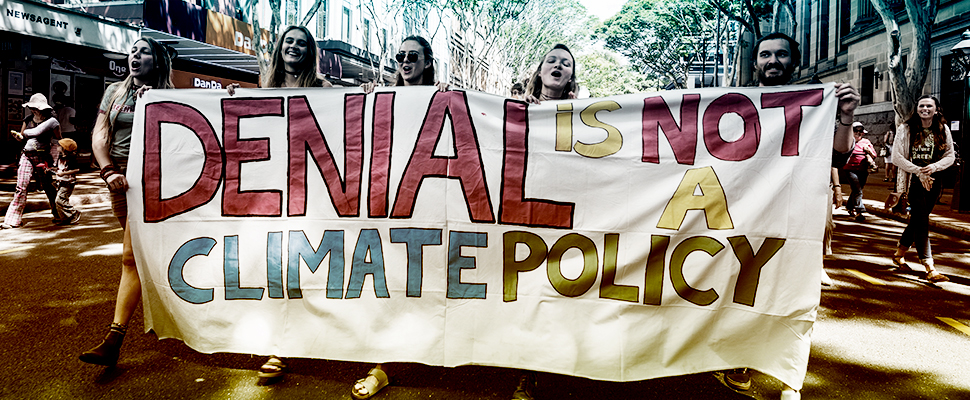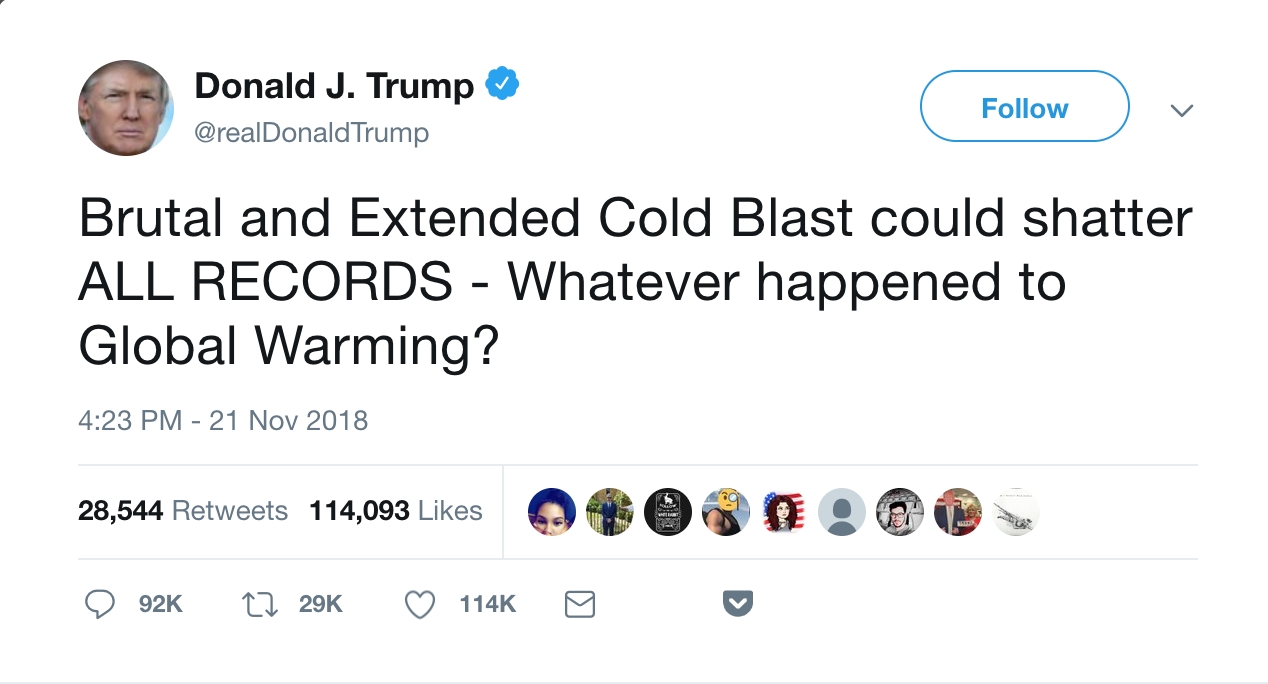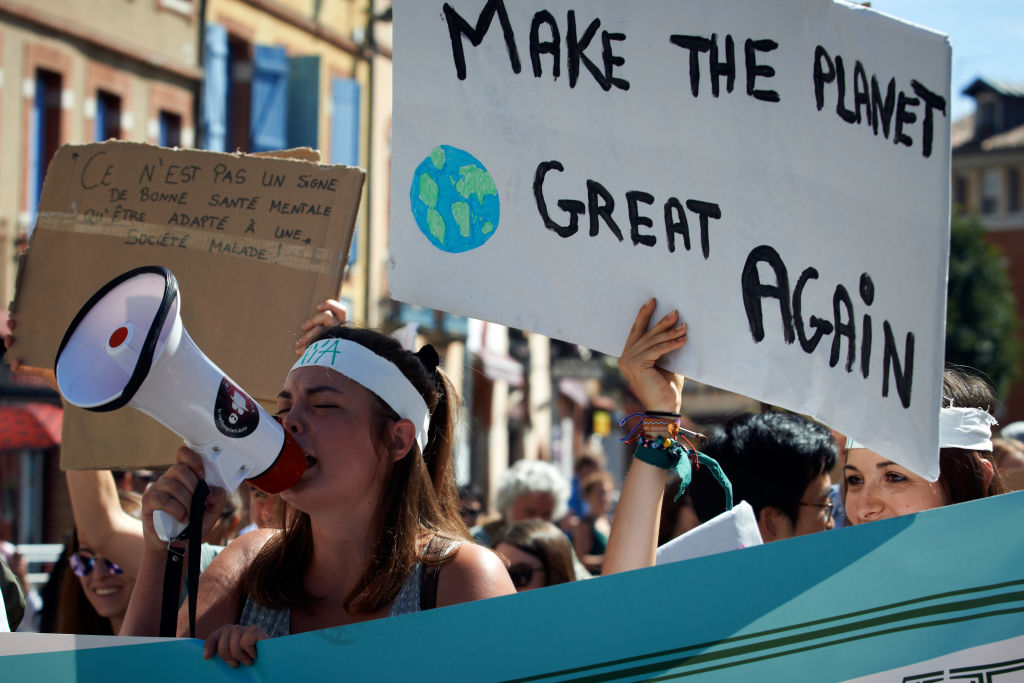
If you knew that someone would go on to do terrible things in the future, if you could see it with certainty, would you try to stop them, now, in the present?
It’s an age-old question. Usually, one that people chat about over dinner or a joint. A fun hypothetical and nothing more. But what about people doing terrible things now that are going to have sweeping effects on our shared reality in years to come? What about people who have no care for our destruction of the planet or the various species that inhabit it? Would you do something to stop them? To what lengths would you go? What if they denied the very idea that the planet is in peril at all?
At what point does someone’s blatant aggression against the future safety and security of humankind demand counter-aggression in the present? What would you do today in order to protect tomorrow?
This cascade of questions is deeply relevant to our relationship with the environment. Climate change has deleterious effects on the planet; ignoring the problem exacerbates those effects. If the jury was still out, as our president continues to insist, it would be a different story. But these debates are all dead. Not only is the science settled on the idea that humans are the leading cause of climate change, the science is also settled on whether or not the science is settled.
The Fourth National Climate Assesment, a Congress-mandated report, released both sneakily and perhaps fittingly on Black Friday, is quite clear on the fact that the effects of climate change are here. The report is full of little gems like:
The continued warming that is projected to occur without substantial and sustained reductions in global greenhouse gas emissions is expected to cause substantial net damage to the U.S. economy throughout this century.
And:
Extreme weather and climate-related impacts on one system can result in increased risks or failures in other critical systems, including water resources, food production and distribution, energy and transportation, public health, international trade, and national security.
The 1,656-page document is full of this sort of stuff. The 2014 report drew similar conclusions, with less financial specificity. Meanwhile, a study from Flinders University in South Australia was released yesterday, warning of a species death domino effect. NASA, an agency jammed full of people smart enough to send a rocket 141 million miles away to land on Mars so that it can send us back sunset selfies, has charted 138 years of climate data and compiled all of the agencies and scientific societies that believe in climate change. Take a look. It’s staggering.
So how did the president react to this news, underscored by the NCA report? He said, “I don’t believe it.”
To give the president the benefit of the doubt, his statement seemed to be a response to questions about the effects of climate change on the economy — of which the report provides in-depth specifics. Perhaps the more troubling part of his response was the implication that the United States shouldn’t bother making headway in environmental preservation unless China does the same. The comment reveals the president’s petulance and his overarching position that “if someone is worse, we get to be bad too.”
But in a world where the average populations of mammals, birds, fish, and amphibians have decreased by 60% since 1970, isn’t it sort of time to keep our eyes on our own work? Or at least do what we can, without further delay? Interesting that Trump’s nationalism doesn’t extend to emission reduction and, in this case, he wants to measure ourselves based off of China. (China — which emits more than the US and Europe combined — should indeed be a part of a global carbon reduction strategy, but the idea that their behavior co-signs our inaction is absurd.)
Trump’s climate change position reveals a harrowing fact: Taking care of our planet has become highly politicized. The very act of trying to not let the earth burn up and the sea turn to acid has become something that is defined, to some degree, down party lines. Couple that with the reality that climate science is tricky for the average layperson or leader of the free world to understand, and you get tweets like this.

After sending the tweet above, Trump was scolded by every scientist to ever log onto Twitter for conflating weather and climate. Which is valid. But the desire to connect problems of the day with the broader, systemic conclusions of climate scientists isn’t just endemic to the president or Republicans. California Governor Jerry Brown was called out for doing the same thing this week when he connected climate change and wildfires.
While Trump’s statements are deeply troubling because he denies the unarguable truth that even the most moderate climate scientists are certain of, Brown’s misguided statements allow climate change deniers to act as if this issue is muddled when it really isn’t. This is exacerbated by media that isn’t trained to properly interpret scientific studies. National Geographic dedicated an entire feature last week to unpacking how the WWF’s findings regarding decreasing animal populations were widely misinterpreted and led to false headlines.
Presidential denial paired with well-intentioned fumblings make climate a messy issue and, as we’ve seen over and over, messy issues don’t get attention. But the idea that the globe is warming and that its rate has been accelerated by human behavior is actually achingly simple. Even Roger A Pielke Jr.– a self-proclaimed “climate heretic” who is often cited by climate change deniers — told the House Committee on Government Reform: “Human-caused climate change is real and requires attention by policy makers to both mitigation and adaptation.”
The fact is that the authoritative body of international climate scientists says we only have 12 years left to keep global temperature change below the 1.5C-degree threshold, and, globally and locally, we aren’t doing enough about it. In fact, we need to triple our efforts. So… we might want to listen to them?
If the environmental impact of humans doesn’t trouble you, fine, but your only available reasoning is philosophical nihilism or an Ian Malcolm-esque belief in chaos. Beyond that, there’s no real argument. If you want humans on this earth to continue to thrive for generations, if that’s your end-game, then anyone making the case against the very idea of climate change or using that argument (or failures of the environmental movement) to excuse inaction is your enemy.

So let’s return to the original question: If you knew that someone would go on to do terrible things in the future, if you could see that with certainty, would you try to stop them, here, in the present?
Corporations that pollute with impunity, politicians who ignore science, and anyone who’s not ready to make lifestyle sacrifices for the preservation of our natural resources are the enemies of future us. Their actions are aggressively damaging to the goal of continued life on this planet and demand counter-action. We have to respond. And these responses will have to come on the global, national, and personal levels all at once. They will have to encompass personal habits, spending habits, and voting habits.
We’re in a war. Those who want to take better care of our planet versus those who would ignore science in order to continue on our current path. The latter side has decades of post-industrial revolution steam built up. If we’re going to protect and preserve the planet, it’s going to take a hell of a fight.






